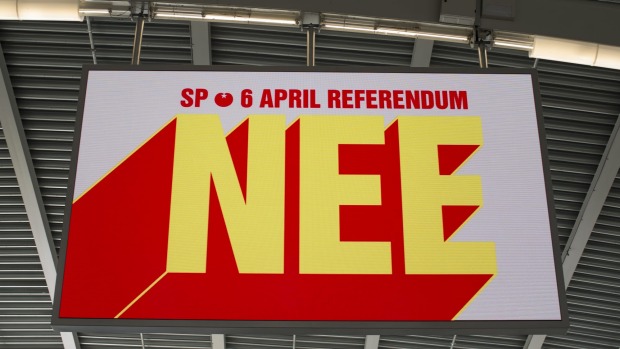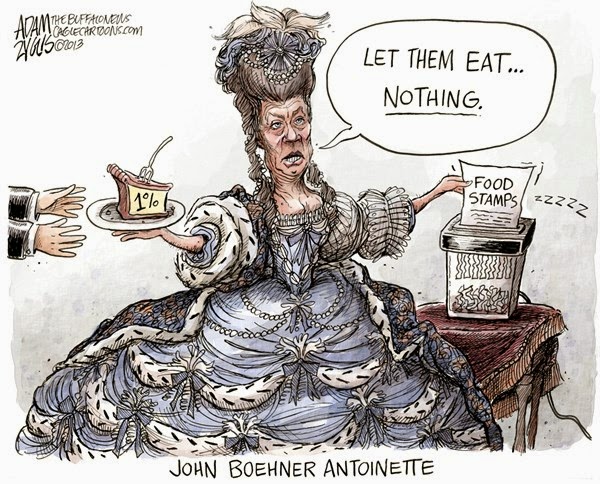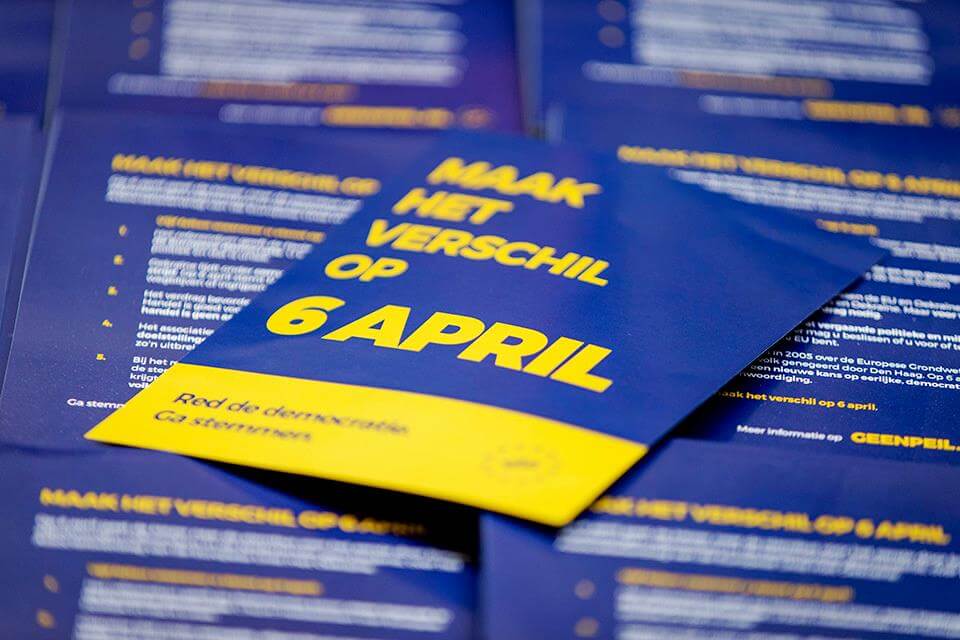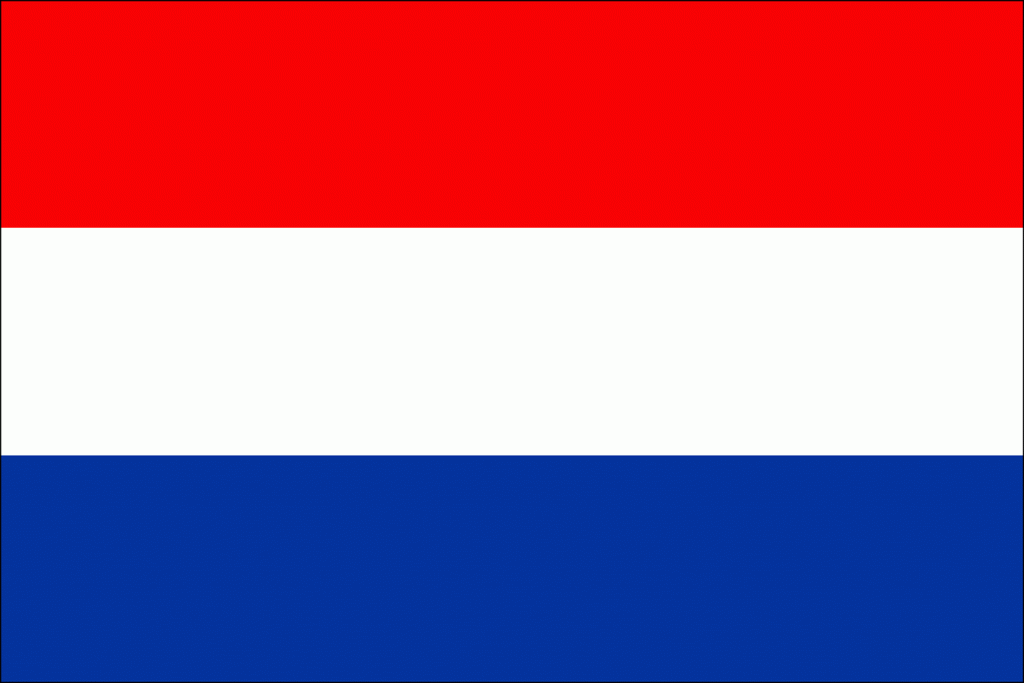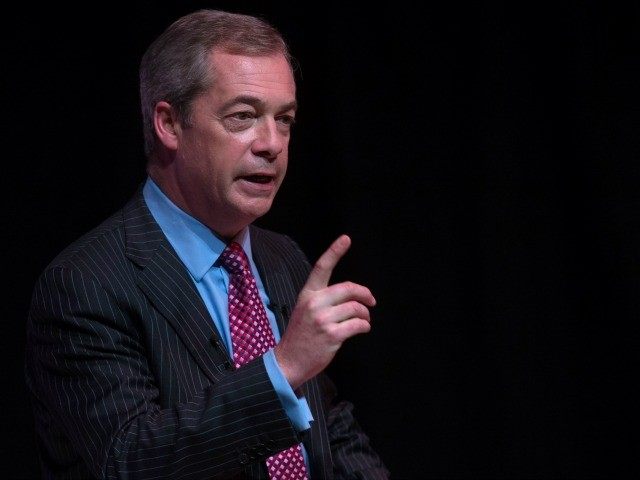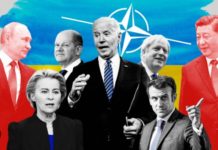by Dimitris Konstantakopoulos
Dutch voters spoke again, as they had spoken in June 2005, when they rejected, along with French voters, the proposed European Constitutional Treaty. The French and the Dutch referendums of 2005 have signified, already from that time, the political end of “euroliberalism”.
In 2005, no power in France, Holland or Europe wanted to receive the message of the voters. Now, we face maybe the probability that there will soon be no power in Brussels to receive the message, one way or another.
Europe is probably living the beginning of the end of the regime prevailing in the continent. As for the EU itself, it is facing a very real possibility of a chaotic crisis potentially leading to a “sudden death”.
We are not yet there, but we witness already an exponential increase of various instability factors and no serious leadership, both on national and Union levels, willing or able to address the enormous challenges this structure is facing.
By voting No, the Dutch voters rejected the Ukraine–European Union Association Agreement. It is too early to say what will be the practical consequences of their verdict. But the political one is already enormous and no European leader was able, until the time these lines were written, to comment in any comprehensive way the deafening “political signal” Dutch citizens emitted.
The voters have not rejected just an agreement. By the way it is also not serious to claim that they voted, the way they voted, just out of fear of refugees or terror. Dutch, Cypriot, French, Irish, Greek voters have, time and again, rejected the policies they propose to them, when they had any opportunity to do it. Long before the refugee and the terror crisis appeared and affected them. Of course both crises have played a role here, but at a maximum, they added to an already deep rejection by European citizens of the whole direction both their states and the Union have taken.
European citizens feel much better than their supposed “leaders” the abyss into which their policies are leading them and they react to that.
Sometimes, European politicians blame exclusively the Union for what they are doing. But most of the Union decisions are taken with the consent of national governments. By attributing to Brussels policies they themselves have voted for, they pay a very bad service to the very idea of any European integration. And the opposite is also true. By focusing rightly but exclusively to the policies of Brussels, we tend to forget other important dimensions of European problems, like what to do in order to face the tremendous power of multinational corporations and international Finance, or the question of European independence.
By refusing the agreement with Ukraine, Dutch voters also refused the “blind” policy of continuous and unlimited “extension” of the Union. Without serious development and integration help, this enlargement policy is not of any help to the new countries. But it is used to destroy the social welfare state in the “old” ones! And also to deny to the Union the means of its independence (“new Europe” states are essentially American neo-protectorates, at least regarding their foreign and defence policies) and make it ungovernable, thus more governable by obscure financial and geopolitical forces.
Dutch citizens refused also, by their vote, indirectly still clearly, the policy towards Russia that Neoconservatives and NATO have imposed on both European governments and the Union, all of them having proved more than obedient to their desiderata, in the most irresponsible way.
The more general message emitted time and again by Cypriot voters (2004), French and Dutch voters (2005), Irish voters (2007), Greek voters (2015) is that Europeans reject the policies of both their “local”, national elites and governments and the European Union bodies which are deciding and applying them. Without bothering excessively to take into account what people thinks of them. Sometime even explaining their policies.
What European citizens, in increasing numbers, feel the need to do, in every occasion they have, is to try to claim back, at least some of the power of their national states and the Union, hijacked be multinational corporations, Finance, extremist geopolitical forces, hidden behind both national elites, Brussels bureaucracy or ECB.
Following are some first media reactions to the result of the Dutch referendum
Netherlands ‘rejects’ EU-Ukraine partnership deal
Voters in the Netherlands have rejected in a referendum an EU partnership deal removing trade barriers with Ukraine, preliminary results suggest.
With 99.8% of the votes counted, 61.1% had said “No”, with 38% supporting a deal, media reports said.
Turnout is projected at 32%, above the 30% threshold of voters needed to be valid but within a 3% margin of error.
Prime Minister Mark Rutte said his government may have to reconsider the treaty if the vote is valid…
… Ukraine’s President, Petro Poroshenko, stressed the non-binding nature of the vote. “I am sure that strategically this event is not an obstacle on Ukraine’s path towards Europe,” the Interfax-Ukraine news agency reported him as saying…
EU Commission President Jean-Claude Juncker has described the stakes in the run-up to the vote as being high, warning that a “No'” vote could trigger a wider crisis in the 28-member bloc….
Read the full article here:
http://www.bbc.com/news/world-europe-35976086
Dutch ‘NO’ in referendum shakes up EU
“Are you for or against the Approval Act of the Association Agreement between the European Union and Ukraine?”
This basically translates do you approve trade deal between European Union and Ukraine.
And the Dutch overwhelmingly voted ‘NO/AGAINST’.
http://www.econotimes.com/Dutch-NO-in-referendum-shakes-up-EU-190838
The Dutch Had Their Say: Media Reaction to EU Treaty Referendum
The morning after Dutch voters rejected the EU’s association agreement with Ukraine in a non-binding referendum according to preliminary results, Dutch newspapers described it as “an embarrassment,” “a dilemma” and “ a recipe for discontent.”
The largest Dutch daily The Telegraaf describes the referendum as “an embarrassment”.
“The message of the Ministers the past days in the media going on a sale in an effort to convince voters of a ‘yes’, was beaten to death. Moreover, the government only barely convinced voters to go to the polling stations,” the website quotes it as saying with the reference to the 32.2 percent turnout which just narrowly exceeded the minimum requirements for the results to be valid.
Another newspaper, Volkskrant, this no-vote is a “recipe for discontent”.
The newspaper believes the no-camp’s victory was aided “by a mixture of disinterest and disgust in the majority of voters”.
What is likely is the vicious circle of Euro-skepticism. Because whatever the cabinet does: the ‘no’ camp will take every European concession as cosmetic polishing, a confirmation of the image that the Netherlands has little more to say. A confirmation too of the feeling that there is every reason to be angry. The referendum gave the anger a voice again, but by no means took the pressure off.”
Read the full article here:
http://sputniknews.com/europe/20160407/1037617566/netherlands-referendum-reaction.html
Minister says referendum law needs revising; 30% threshold ‘an issue’
Home affairs minister Ronald Plasterk plans to look again at the Dutch referendum law in the light of Wednesday’s vote, but has acknowledged that the government must take the ‘no’ result into account.
However, many of the rules surrounding the referendum are confusing and should be looked at again in the light of future votes, he told Radio 1 on Thursday…
Read the full article here:
http://www.dutchnews.nl/news/archives/2016/04/88395-2/
Poroshenko Calls Dutch Referendum on Ukraine an ‘Attack on European Values’
“I would like to remind everyone that the true target of the people, who have organized the referendum — is not the association agreement between Ukraine and the European Union. It is an attack on the European unity, an attack on the European values’ spreading. The discussion that has been launched shortly before the referendum highlights it,” Poroshenko said following the referendum.
http://sputniknews.com/europe/20160407/1037617082/kiev-eu-russia-values.html
A victory for Brexit supporters?
